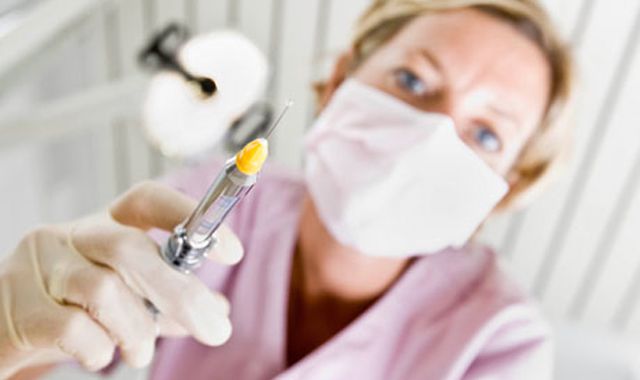Is dental anesthesia destroying children’s teeth?
When dental problems necessitating surgery arise, the logical response is to treat the condition. However, recent research has found that numbing children up for dental procedures may be causing damage to the very teeth the dentist is trying to treat.

When dental problems necessitating surgery arise, the logical response is to treat the condition. However, recent research has found that numbing children up for dental procedures may be causing damage to the very teeth the dentist is trying to treat.
A study out of University of Plymouth examining local anesthetic and tooth cell growth discovered that prolonged exposure to high concentrations of local anesthetic had increasingly detrimental effects on tooth development. The use of local anesthetic is more prevalent in dental treatment than any other clinical area, the researchers said, making this discovery especially pertinent to dentistry. This is especially critical in a time when more and more children undergo dental procedures.
Related reading: Did dental anesthesia cause one man's bizarre amnesia?
While dosage limits of local anesthetics have been researched and established, no prior work had been done on the potential side effects of anesthetics on dental tissue. The only previous study, conducted on dogs, reported that local anesthetics could accumulate in tooth crypt buds or the mandibular canal, but effects of this accumulation were not examined.
In the University of Plymouth study, researchers used human tooth pulp cells and pig teeth to study how local anesthetics affected the cells. Pulp cells are crucial to tooth development and dentin repair, and the effects of the anesthetic on these cells was evaluated by measuring cell proliferation, differentiation and apoptosis.
Continue to page two for more...
Local anesthetic was found to stunt tooth cell growth by interfering with mitochondria in the tooth and inducing autophagy, a mechanism of cell degradation and destruction that balances sources of energy in critical times in development.
“In conclusion,” study authors wrote, “our findings that local anesthetics can induce autophagy in tooth pulp cells have clinical implications, due to their potential impacts on tooth development as well as root formation and apical foramen closure.”
Anesthetics commonly used in dental clinics in the UK, China and Switzerland, including two articaine-based drugs, a mepivacaine-based drug and a Lidocaine-based drug, were used in the study. Researchers did not compare the similarities and differences between the different types of anesthetic, but focused on the common effects.
Led by Dr. Bing Hu, the study emphasized that despite the discovery of the potentially harmful effects, further research is necessary before any review of clinical guidelines, and that necessary dental treatment should not be avoided due to these findings. Dr. Bing Hu concluded, “Future in vivo validation of our findings will be plausible to further enhance our knowledge about the clinical impacts of these local anesthetic drugs.”
The research, "Local anesthetics induce autophagy in young permanent tooth pulp cells," was published on September 7, 2015, in Cell Death Discovery, a Nature Publishing Group medical research journal.
Oral Health Pavilion at HLTH 2024 Highlighted Links Between Dental and General Health
November 4th 2024At HLTH 2024, CareQuest, Colgate-Palmolive, Henry Schein, and PDS Health launched an Oral Health Pavilion to showcase how integrating oral and general health can improve patient outcomes and reduce costs.
Floss & Flip Flops Episode 14: Children's Dental Health Month with Irene Iancu
February 1st 2023The Sanders Sisters invite Irene Iancu, RDH onto the microphone to discuss Children's Dental Health Month, discussing the importance of prevention, counseling and patient-centered care for our pediatric patient population.
Episode 31: Dentsply Sirona Implant Announcements
September 30th 2021DPR’s Editorial Director Noah Levine sat down with Gene Dorff, Dentsply Sirona’s group vice president of implants and Dr. Dan Butterman to review several big announcements the company made in the arena of implants during Dentsply Sirona World 2021 in Las Vegas.